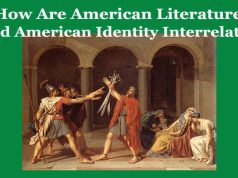Doki Doki Literature Club Rule 34
Doki Doki Literature Club Rule 34
Doki Doki Literature Club Rule 34
Introduction:
“Doki Doki Literature Club Rule 34” refers to a concept within internet culture that involves the creation and sharing of explicit, often pornographic, content based on the characters from the game “Doki Doki Literature Club” (DDLC). This phenomenon raises several ethical concerns and can be critiqued for various reasons, particularly when considering educational purposes:
Violation of Consent:
The characters in “Doki Doki Literature Club” are fictional, and the creation of explicit content involving them may be seen as a violation of the consent that real individuals would have in similar situations. This raises questions about ethical behavior in creative spaces.
Impact on the Original Work:
Doki Doki Literature Club Rule 34 content can potentially impact the reputation and intended audience of the original work. DDLC is a game known for its psychological themes, and the creation of explicit content may divert attention from the game’s narrative and artistic merits.
Potential Harm to Fans:
Rule 34 content can be distressing or offensive to fans who appreciate the original work for its storytelling, characters, and themes. The creation of explicit content may overshadow the positive aspects of the game and create discomfort for fans.
Educational Implications:
When discussing Rule 34 in an educational context, it provides an opportunity to explore ethical considerations in online communities, the impact of fan-created content on the perception of a work, and the blurred lines between fiction and reality in digital spaces.
Discussion of Boundaries:
Analyzing Doki Doki Literature Club Rule 34 within the context of DDLC allows for a discussion about the boundaries of fan expression, creative interpretation, and the responsibility of content creators in shaping the online communities associated with a particular work.
Online Etiquette and Respect:
Rule 34 content raises questions about online etiquette and respect for the intentions of the original creators. Discussing these issues in an educational setting can help students understand the importance of respecting creators’ work and fostering positive online communities.
Media Literacy and Critical Thinking:
Analyzing Doki Doki Literature Club Rule 34 within the framework of DDLC provides an opportunity for media literacy and critical thinking. Students can explore the impact of fan-created content on the perception of a work, the ethics of artistic interpretation, and the role of fandom in shaping a creative community.
Conclusion:
In educational discussions, it’s essential to approach the topic with sensitivity, emphasizing critical thinking, ethical considerations, and the importance of fostering a respectful and inclusive online culture. The focus should be on exploring the broader issues surrounding fan culture, consent, and the responsibilities of content creators and consumers in digital spaces. 0 0 0. Doki Doki Literature Club Rule 34
Doki Doki Literature Club Rule 34
You May Like:







